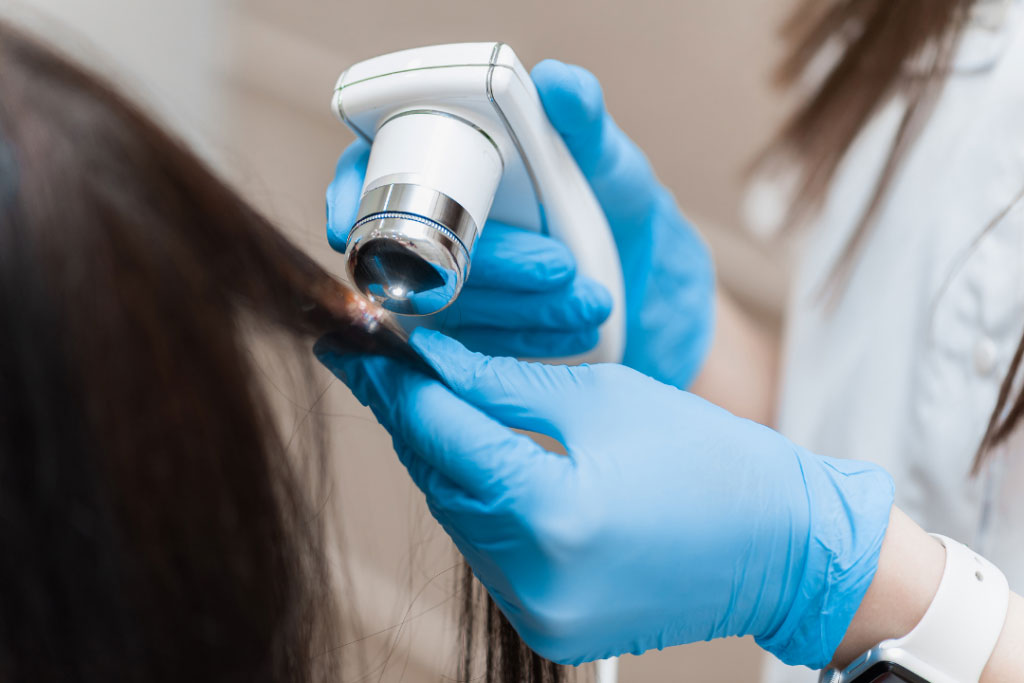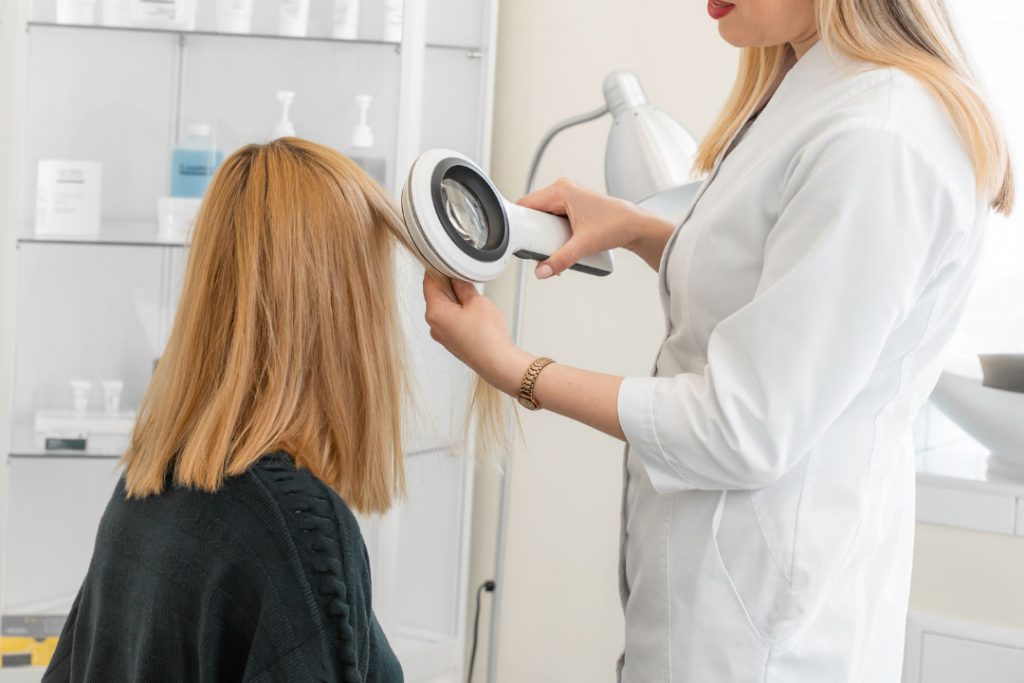Registration
Being a Trichologist in our organisation involves annually subscribing as a member and adhering to our strict code of Professional Practice and Ethics, which ensures that all members uphold patient safety as their number one priority
All registered members have undergone education programmes to qualify as a Trichologist. The education programmes cover scientific and medical aspects to help diagnose all hair loss/thinning/hair shaft disorders and scalp problems.
A registered member has been trained to recognise and assist or advise male and female patients of any ethnicity on:
- all hair loss or thinning problems such as alopecia’s, male/female baldness or diffuse loss
- structural problems or breakage concerns
- scalp disorders like dandruff, eczema/dermatitis or psoriasis
excessive unwanted hair – conditions known as hirsutism and hypertrichosis - discolouration of the hair due to environmental factors
- general loss of appearance and/or condition of the hair
- counselling and appropriate referral for those patients contemplating hair transplantation or other hair replacement procedures
During clinical work, after consulting and diagnosing a patient some Trichologists conduct treatments in the clinic and some offer advice only, recommending treatments for home use outside the clinic.
Some of our members choose to list ‘Specialisms’ – this does NOT mean that this is their only area of practice, all members have been trained to deal with all aspects of hair and scalp disorders.
Trichologists are generally not medically qualified but are medically trained in areas pertaining to the health of the hair and scalp, therefore not usually registered with the GMC (General Medical Council). If they possess additional qualifications such as being a doctor or dermatologist, it will be shown by the use of post-graduate letters after their name or in their specialism/notes.

Legal Specialism
Some of our Trichologists have additional qualifications such as offering legal work as an Expert Witness in litigation cases. These will be addressed on their listing on our website under specialisms. It is up to the individual Trichologist and not the IoT to keep up to date with their legal requirements of any additional legal associations or bodies they belong to. Solicitors must contact the individual and request their CV for qualifications.
What we do for our members
Members have the honour of of being part of the longest-established Trichology organisation (established in 1902). Members have the opportunity to attend our organised CPD days to update their knowledge-base and to network with colleagues. They can be actively involved in developing and promoting Trichology as a much needed allied healthcare service and can be confident of doing so within well defined guidelines that keep both the general public and Members safe.
We produce our own regular newsletters, throughout the year, giving updates and opportunities (business & Trichological), sharing research and updating the members on what the Institute has been doing to promote our Trichology businesses through external events and the media.

